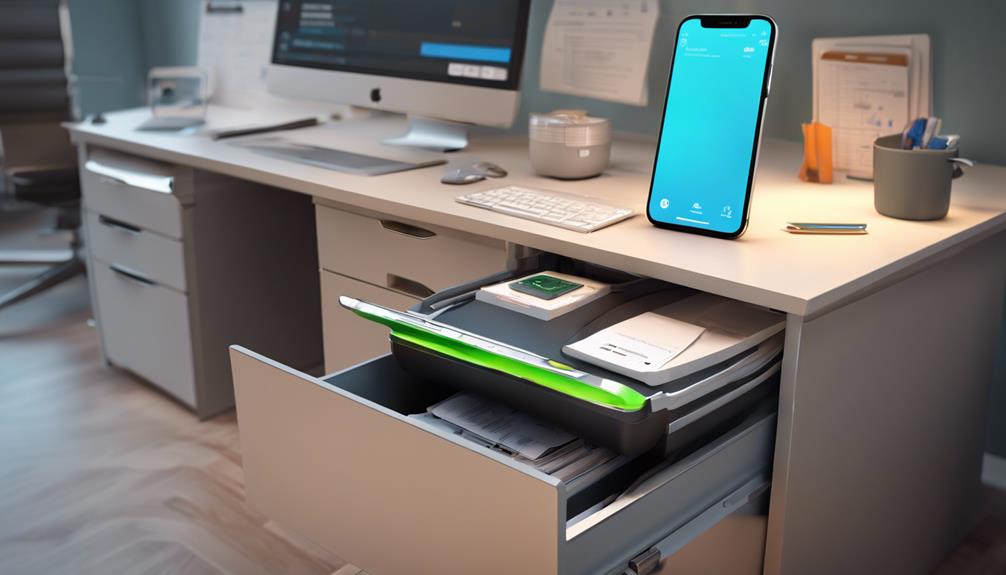
No, archiving a message doesn't mean it's deleted. When you archive a message, you're simply moving it out of your main inbox to clear up clutter, but it's still accessible and stored safely in a separate folder. It's like putting something valuable in a safe spot where you can find it later if you need to revisit it. This helps keep your digital space organized without losing any important information or cherished memories. Exploring further, you'll uncover handy tips and tricks to manage your messages more effectively and keep your digital life streamlined.
Understanding Message Archiving
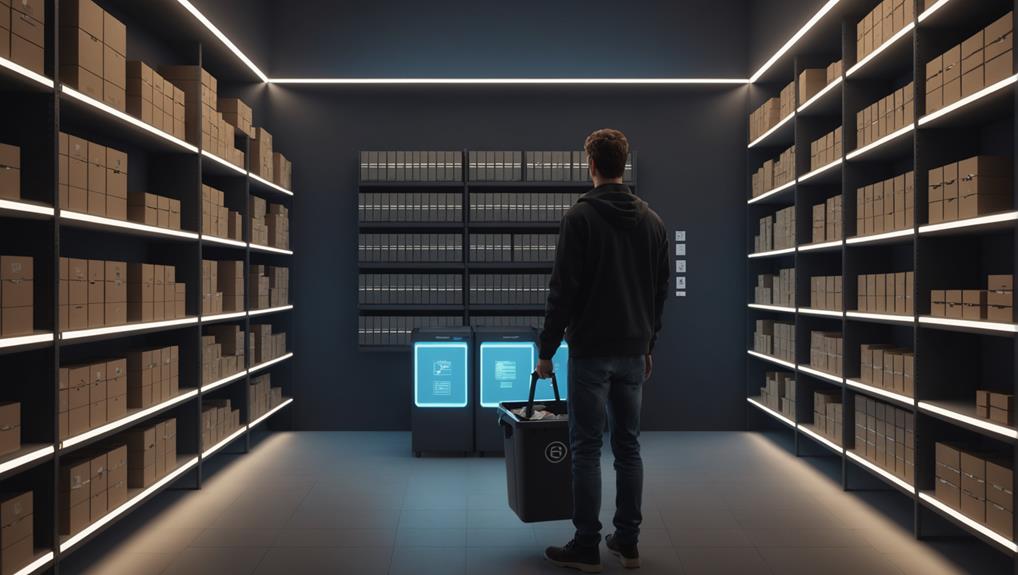
Message archiving ensures that you can retrieve your communications even after they've been removed from your active conversation list. It's like having a safety net, keeping your messages secure and accessible, ensuring that you're always part of the conversation, past or present. This feature is particularly handy when your inbox feels cluttered or overwhelming—you don't have to say goodbye to old messages, you just store them away neatly until you need them again.
Think of it as your own personal library of interactions. Each message, a book on a shelf, is there for you whenever you want to revisit a conversation or reignite old memories. You're not alone in valuing these snippets of digital dialogue; they form a tapestry of your relationships and interactions, weaving together the narrative of your social and professional engagements.
The Difference Between Archiving and Deleting
You might think archiving and deleting are the same, but they serve distinctly different purposes. When you archive a message, you're simply moving it out of your immediate view, tucking it away for potential future reference. It's like putting old photographs into a box; you're not looking at them every day, but you know exactly where to find them if you want to reminisce or need to check something.
On the other hand, deleting a message is like shredding those photographs. Once you delete a message, it's intended to be gone for good, wiping it clean from your main inbox and eventually from all storage after a certain period. It's a way to clear out clutter and ensure that you're only keeping what's truly necessary or meaningful.
As a member of this connected world, it's crucial to understand these differences. Archiving lets you keep your space neat without losing memories or important info, while deleting helps you maintain privacy and manage the overload of information. Whether you're a meticulous organizer or someone who cherishes every bit of communication, knowing when to archive and when to delete can make all the difference in managing your digital life.
How Email Providers Handle Archiving
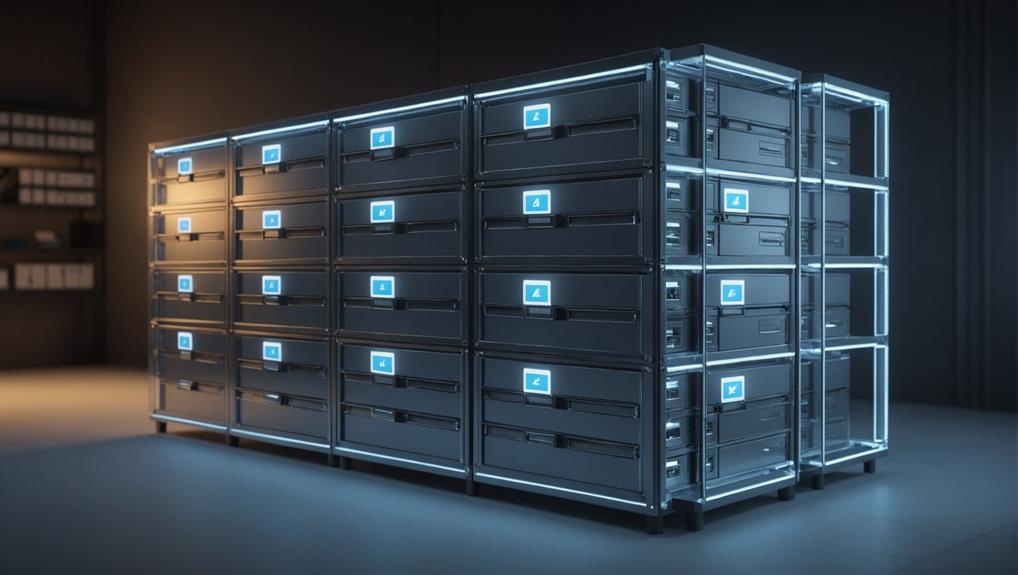
Email providers typically store your archived messages in a separate folder, making them easy to retrieve yet out of your main inbox. This setup helps you keep your email organized without losing any important information. It's like having a special drawer just for the keepsakes you're not currently using but still cherish.
When you archive a message, it's moved to this specific folder automatically. You won't see these emails every day, but they're there for you whenever you need them. Think of it as keeping your friends close, even when they're not around. You're not throwing away memories; you're just tidying up.
Most email services, like Gmail, Outlook, or Yahoo, have a straightforward process for both archiving and retrieving. Usually, it's just a click or a tap away. You can archive emails individually or in bulk, which is perfect when you're doing a quick clean-up of your inbox. And finding them again? Just as easy. There's typically a search bar in the archive folder—type in what you need, and it appears right before your eyes.
Archiving on Social Media Platforms
Just as email providers make it simple to archive messages, social media platforms offer similar features to manage your digital interactions. Whether you're on Facebook, Instagram, or Twitter, you've got the power to tidy up your online space without losing memories. It's like having a secret room where you can store your stuff temporarily, without saying goodbye forever.
Think of it this way: you're at a bustling party, full of conversations—some you cherish, others you'd rather pause. Archiving on social media lets you mute the noise without leaving the party. You can hide posts from your timeline or messages from your inbox, ensuring your space reflects your current vibe and values. It's your personal haven, tailored by you, accessible whenever you want.
This feature really shines when life gets overwhelming, or when interactions become too much. You don't have to sever connections or erase past interactions. Instead, you can take a breather, knowing everything is safely tucked away until you're ready to revisit them. It's about keeping your digital environment healthy and aligned with who you are, ensuring you feel connected and in control of your online presence.
The Lifecycle of an Archived Message
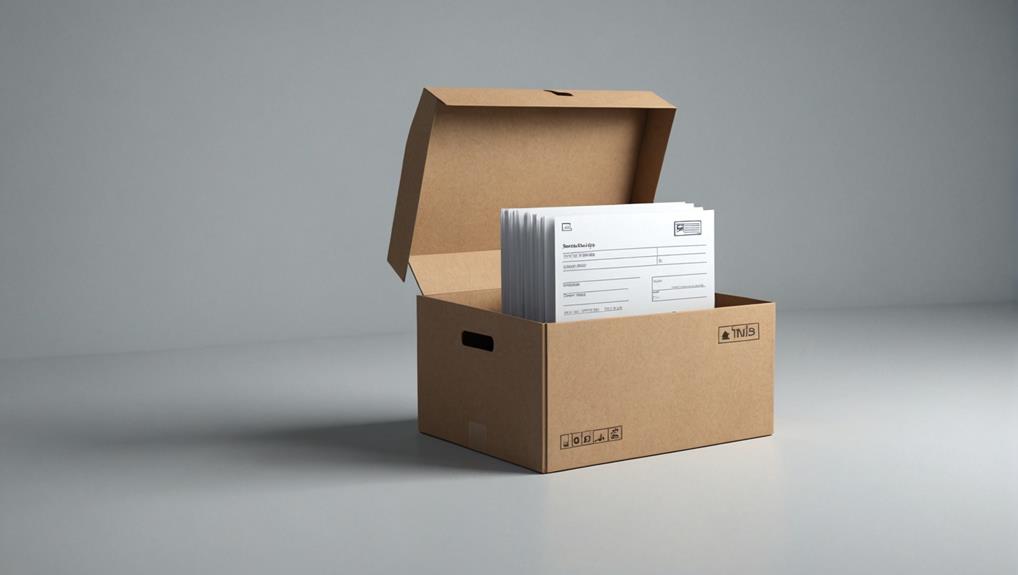
When you archive a message, it begins a journey into temporary storage, remaining accessible but out of immediate view. Think of it as tucking away a letter in a special drawer; it's not gone, just stored safely for later. This process ensures your digital space feels more organized and less cluttered, making room for new interactions and conversations that matter right now.
Archived messages aren't deleted. They're preserved in a designated area within the app or service, separate from your active conversations. This separation means you won't see these messages daily, but they're still there, part of your ongoing story and digital footprint. You're not erasing memories; you're simply organizing them in a way that keeps your current engagements front and center.
Imagine you're part of a vast community where everyone has their own space to manage as they see fit. Archiving messages allows you to curate your interactions, keeping what's important or sentimental out of sight but close at hand. It's a personal archive, a collection that's uniquely yours, reflecting your relationships and conversations that have shaped your digital life. This personal touch fosters a sense of belonging, as your digital realm mirrors the complexity and depth of your real-life interactions.
Retrieving Archived Messages
While archived messages are out of sight, retrieving them is a straightforward process. You're not alone in thinking they might be gone forever, but actually, they're just neatly tucked away for when you need them. Whether you're using a smartphone, tablet, or computer, just a few steps can reunite you with your stored conversations.
On most platforms, like your email or messaging apps, there's a specific archive section. You'll typically find this option in the menu. It's like having a secret compartment where all your old messages wait to be called back into action. Dive into this section, and you can browse through the archived messages. They're all there—none of your shared moments or important info has vanished.
To restore these messages to your main inbox or chat list, simply select them and choose the option to ‘unarchive' or ‘move to inbox.' It's comforting to know that your digital memories are just a few clicks away. Reconnecting with these messages isn't just about revisiting past conversations; it's about preserving the ties that bind you to your personal or professional circles. These stored messages are a testament to your enduring connections and shared histories.
Privacy Implications of Archiving

Archiving your messages safeguards your privacy, but it also raises questions about who else can access these tucked-away conversations. When you archive, you're not just hiding messages from your immediate chat list; you're placing them in a secluded part of your digital world. This action feels like you're keeping a part of your life private, a secret garden where not everyone is allowed.
However, you might wonder, "Am I really the only one who can stroll through this garden?" The truth is, while your archived messages are out of sight from friends and family, they might still be accessible to the service provider. This means someone could, under certain circumstances, peek behind the curtain.
It's crucial to understand the policies of your messaging service. They should be transparent about who can access your information and under what conditions. Feeling secure in your digital spaces is key to feeling at home there. Knowing these details lets you maintain not just privacy but also a sense of control and belonging in your online interactions. So, take a moment to check in with your service provider's privacy policies—it's an important step in ensuring your secret garden remains yours alone.
Archiving Vs. Deleting: User Control
You have more control over your messages when you choose to archive rather than delete them. Archiving lets you tidy up your digital space without losing memories or important information. Think of it as putting old photos into a storage box under your bed. They're out of the way, but still there when you want to reminisce or need to retrieve something important.
On the other hand, deleting is like shredding those photos. Once they're gone, they're gone for good. It's final, leaving no room to reconsider or recover what might later turn out to be valuable or sentimental. This might make you feel a bit isolated, especially if you accidentally delete a message that connects you to others or holds special meaning.
Tips for Effective Message Management
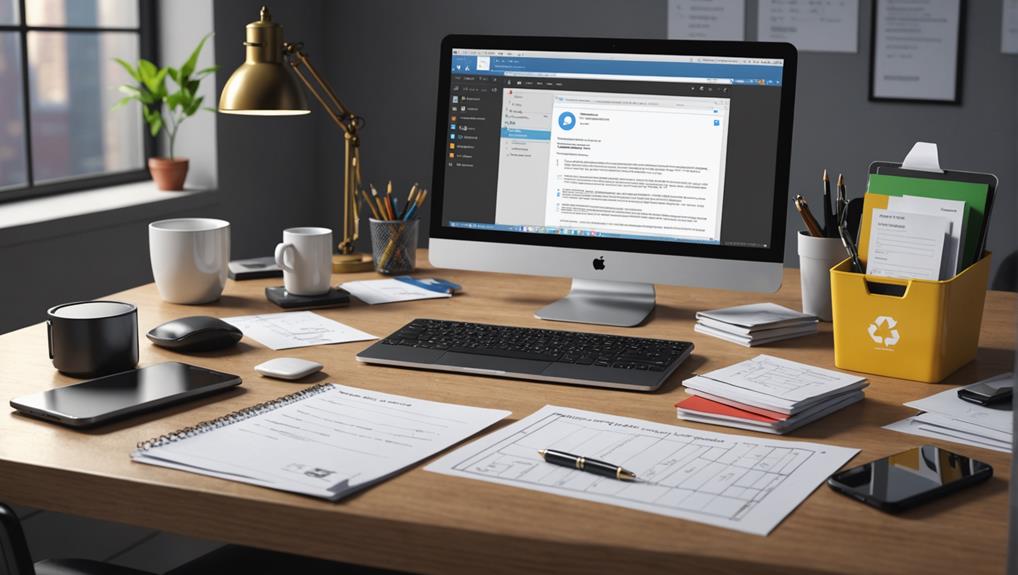
Managing your messages effectively can save you from the regret of losing valuable information or cherished memories. It's about keeping you connected and ensuring you don't miss out on the moments that matter. Here's how you can stay on top of your communication game.
Firstly, regular clean-ups are crucial. Don't let thousands of unread emails or messages overwhelm you. Set aside time each week to sort through your inbox and messages. It's like meeting up with friends; you've got to keep the lines clear to maintain the relationship.
Use folders or labels to organize your conversations. Just as you'd categorize books on shelves, do the same with your digital correspondences. Have a folder for family, one for work, and maybe another for your hobby groups. This way, you always know where to find specific threads.
Lastly, make use of archiving features. Unlike deleting, archiving keeps the clutter out of sight but not out of reach. It's perfect for when you want to hold onto messages without having them in your immediate view.
Future of Message Archiving Technology
Looking ahead, message archiving technology will continue to evolve, simplifying how you store and retrieve your digital conversations. Imagine a world where you're not just saving messages, but you're part of a community that values security, accessibility, and connection. As technology advances, you'll see smarter systems that intuitively categorize your chats, emails, and documents based on their content and your personal habits. This isn't just about convenience; it's about creating a space where every one of your messages can be safely tucked away, yet instantly accessible when you need them.
Future updates might include AI-driven features that predict which archived messages you might be looking for, based on your current project or conversation patterns. You'll feel like you're part of a group that truly understands your needs and respects your time. Cloud storage solutions will become more integrated, offering seamless synchronization across all your devices, ensuring that you're never out of the loop, whether you're at home, at work, or on the go.
This evolving technology isn't just improving; it's transforming to meet your needs and make sure you're always connected to what matters most. Welcome to the future of message archiving, where you're never alone in managing your digital life.
Conclusion
You've seen that archiving isn't the same as deleting. While archiving keeps your messages out of sight without removing them permanently, deleting clears them for good. Remember, how you manage your messages can affect your privacy. Always choose wisely whether to archive or delete, based on your needs. As technology evolves, staying informed about how your messages are handled will ensure you're always in control. So, keep these tips in mind for managing your digital communications effectively!






